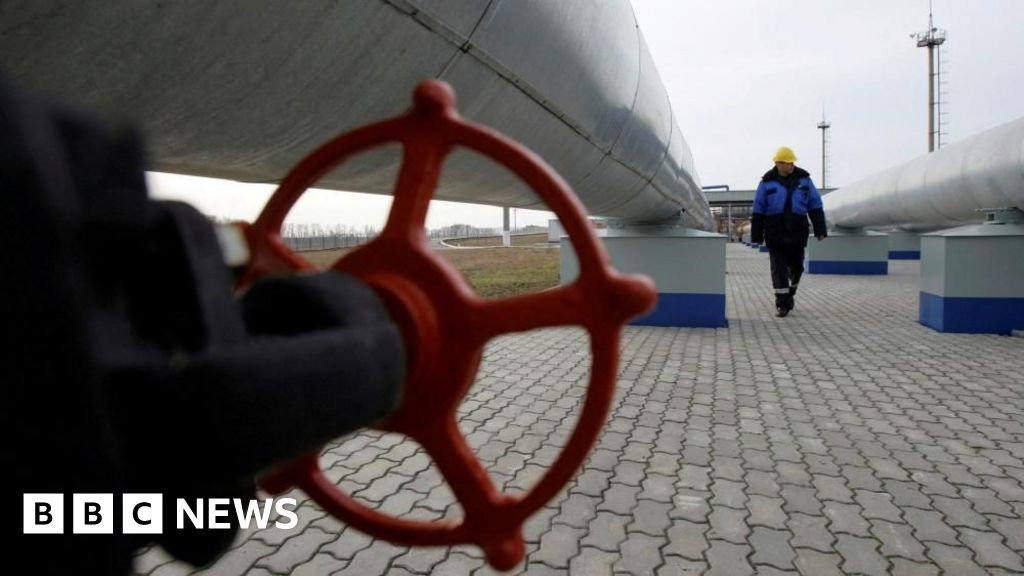Iran’s recent military actions against Israel mark a significant departure from its traditional reliance on proxy forces such as Hezbollah and Hamas. The roots of this shift can be traced back to the Israeli airstrike on an Iranian consulate in Damascus on April 1, 2024. The attack resulted in the death of seven IRGC members, including two key generals, and triggered widespread condemnation. Despite international outcry, a Russian-drafted UN Security Council statement to condemn the strike was vetoed by the United States, Britain, and France. This veto underscored the geopolitical dynamics that shield Israel from accountability, heightening Iran’s resolve to retaliate in defense of its national honor.
The escalation that followed was not merely a matter of tactical response but reflected deeper currents within Iran’s national identity and strategic thinking. Richard Ned Lebow’s A Cultural Theory of International Relations provides a critical lens to understand these actions. According to Lebow, states, like individuals, are driven by honor, identity, and revenge. Iran’s direct engagement with Israel through Operation True Promise on April 13, 2024, marked a pivotal moment in Tehran’s military strategy. For the first time, Iran launched a large-scale attack from its own territory, involving over 200 drones and missiles, some of which successfully penetrated Israel’s defenses despite interception efforts by the U.S., U.K., and Jordan. This operation, coordinated with Hezbollah and Iranian-backed militias, was both a retaliatory move and a strategic demonstration of Iran’s growing military capabilities and regional influence. On October 1, 2024, Iran launched another barrage of 180 missiles across Israeli territory, which Iranian officials described as a “rational and legitimate response” to recent assassinations by Israel of key allied leaders, including Hezbollah leader Hassan Nasrallah and Hamas leader Ismail Haniyeh. This action underscored Iran’s stance in defending national honor and strategic interests.
In response, on October 28, 2024, Israel conducted further airstrikes on Iranian missile and drone production sites. Iran’s Supreme Leader Ali Khamenei gave a measured response to these strikes, stating that the attacks should not be “exaggerated or downplayed” while refraining from pledging immediate retaliation. This stance reflects Iran’s commitment to strategic patience and honor-focused resilience, signaling a calculated restraint in the face of direct provocations.
By engaging directly, rather than through proxies, Iran asserted its national honor and military prowess, signaling that Israel is no longer untouchable in the region. This shift in strategy aligns with Iran’s broader geopolitical goals of challenging Israeli dominance and Western influence, while reinforcing its leadership role within the “Axis of Resistance.” Iran’s direct military engagement with Israel asserts its national honor, signaling to its allies and adversaries that it is a sovereign state unwilling to tolerate challenges to its dignity, a sentiment deeply embedded in Lebow’s framework of honor as a driving force in state behavior. In this context, Iran’s actions are not merely reactive but part of a calculated effort to restore honor, mobilize regional allies, and redefine its role in the increasingly multipolar Middle East.
The Supreme Leader of Iran, Ayatollah Ali Khamenei, underscores this ideology by promoting unity and collective strength as divinely mandated, drawing directly from Quranic verses. In a Friday sermon in Tehran , he stated, “If you Muslims have a connection, cooperation, and solidarity with each other, the mercy of Allah will be upon you. Then [the verse] says: the dignity (ʿizzat) of Allah and the wisdom (ḥikmat) of Allah will be with Muslims in unity and concord.” By referencing these Quranic verses, Khamenei presents this vision of ʿizzat—dignity—as a central motivating principle that transcends political alliances, framing Iran’s alliances with Hezbollah and Hamas as part of a shared religious mission to resist oppression and uphold the dignity of the Muslim community.
These strikes, therefore, were not just tactical but strategically calculated to balance Iran’s need to maintain honor without provoking uncontrollable escalation. Iranian officials aimed not only to retaliate but also to demonstrate that Israel is not an untouchable force in the region. The operation showcased Iran’s ability to strike Israeli targets from multiple locations within its own territory, underscoring its capability to reach critical Israeli assets when necessary. While honor demands a visible response to Israeli aggression, fear—a counterbalancing force in Lebow’s framework—moderates Iran’s actions, guiding its decisions to avoid unmanageable escalation while defending its sovereign standing. This show of strength allowed Iran to preserve its dignity while carefully managing the risks of escalation. Despite the interception of most projectiles by Israeli and allied defense systems, Iran’s ability to penetrate Israel’s defenses with ballistic missiles illustrated a significant shift in its military strategy and capabilities. These developments reveal an evolving military sophistication that signals Iran’s readiness for more direct confrontation, highlighting its increasing influence in the regional power dynamics.
Lebow emphasizes the critical role of honor—the drive for recognition and respect—in shaping state behavior, particularly in cases like Iran’s. While conventional international relations theories prioritize material interests and strategic calculations, Lebow argues that honor, standing, and the quest for recognition are deeply embedded in state actions. In Iran’s case, its missile strikes can be seen as a calculated fulfillment of honor-bound motivations, reflecting a desire to restore national honor and assert sovereignty in response to perceived violations. These strikes serve not only as acts of revenge, rooted in Iran’s cultural and religious frameworks, but also as carefully measured responses that avoid full-scale conflict. Lebow’s concept of honor helps explain how Iran’s actions are driven by more than just material interests—honor, identity, and the pursuit of revenge are key motivators. By engaging in these measured military responses, Iran satisfies both its cultural imperatives and strategic objectives, asserting its national identity and avoiding uncontrollable escalation. This demonstrates that Iran’s actions, far from being purely reactive, are deeply aligned with Lebow’s understanding of honor as a powerful driver in international relations.
The Shiite framework, particularly within the Husayn-Karbala paradigm, , deepens Iran’s approach to honor and resistance, reflecting a commitment not only to national dignity but also to religious duty. The Supreme Leader further reinforces this duty by stating, “the dignity (ʿizzat) of Allah and the wisdom (ḥikmat) of Allah will support united Muslims, enabling them to overcome obstacles and enemies alike.” In this context, Iran’s solidarity with Hezbollah and Hamas aligns with a theological commitment to defend the oppressed, particularly Palestinians, positioning Iran not just as a political actor but as a guardian of Islamic honor and unity.
In this conflict with Israel, this paradigm has been invoked to frame the deaths of key figures like IRGC members, Hezbollah’s leaders Hassan Nasrallah and Hashem Safieddine, and Hamas’s leaders Yahya Sinwar and Ismail Haniyeh as martyrdom in the ongoing struggle against Israel oppression Iran’s missile strikes are not simply retaliatory acts; they fulfill a larger ideological narrative, drawing upon the Shiite duty of resistance against oppression. These actions resonate beyond their immediate military objectives, reinforcing Iran’s self-perception as a protector of the oppressed, particularly Palestinians, and its leadership within the “Axis of Resistance.” By invoking the sacred duty of avenging injustice and honoring martyrs, as Ayatollah Khamenei has emphasized, Iran strengthens its influence among Shiite communities and regional allies, mobilizing support under a shared narrative of resistance.
Iran’s missile strikes, therefore, serve both symbolic and strategic purposes. On the symbolic front, they act as a restoration of honor and a fulfillment of the culturally ingrained need for revenge, particularly when Iran perceives its sovereignty or religious duty as having been violated. This need for honor is deeply tied to Iran’s national identity, which is heavily influenced by both Shiite ideology and historical narratives of resistance. The missile strikes, therefore, resonate with the broader public and within Iran’s political circles as a necessary response to affronts to their dignity and religious values. Simultaneously, these actions reinforce Iran’s broader ideological mission: asserting its leadership within the “Axis of Resistance” against Israel and the West, especially in the context of defending the Palestinian cause. As Ayatollah Khamenei stated, “the dignity and wisdom of Allah” will support the united Muslims, aiding them against their oppressors. This framing enables Iran to present its military actions as both strategic moves and part of a divine mission, solidifying its position as a regional defender of oppressed Muslims.
The broader geopolitical implications of these actions are profound. While the physical damage from the strikes may be limited, their symbolic weight is enormous. Iran’s ability to strike deep into Israeli territory challenges the long-standing perception of Israel’s military invulnerability and shifts the regional power dynamics. The strikes also serve as a message to U.S that Iran is an actor with significant military capabilities, capable of engaging in direct confrontations when required. This complicates the U.S.’s position in the region. Despite its unwavering support for Israel, the changing global dynamics—including the rise of multipolarity—mean that American hegemony is increasingly being challenged by emerging powers such as China and Russia. Iran’s actions reflect its alignment with this shifting global order, asserting itself as a regional power capable of influencing the Middle East’s geopolitical landscape.
Looking ahead, if Iran continues its direct engagement strategy, several outcomes are likely to reshape the regional power landscape. Iran’s focus on countering the U.S. and Israel rather than posing a threat to neighboring Arab states opens a window for regional solidarity. Recognizing this shared objective, Arab and Muslim countries in the region may find strategic alignment with Iran beneficial, forming a united deterrent bloc that challenges Israeli policies and reduces its influence. This coalition could embolden the broader “Axis of Resistance,” fostering a regional front rooted in a shared commitment to resist perceived external aggression. However, balancing honor-driven action with strategic restraint remains crucial; any escalation risks exhausting resources and drawing the region into wider conflict. Iran’s evolving military doctrine thus reflects not only a response to immediate threats but also a longer-term vision to redefine power dynamics in a multipolar Middle East through strategic partnerships and collective resistance.

 Movie
Movie 1 month ago
29
1 month ago
29 






![Presidents Day Weekend Car Sales [2021 Edition] Presidents Day Weekend Car Sales [2021 Edition]](https://www.findthebestcarprice.com/wp-content/uploads/Presidents-Day-Weekend-car-sales.jpg)



 English (United States)
English (United States)